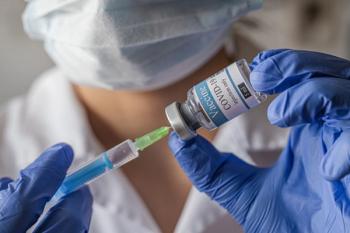
A cross-sectional analysis evaluated a myriad of socioeconomic and demographic factors that drive stigma experienced by patients with multiple sclerosis (MS).

A cross-sectional analysis evaluated a myriad of socioeconomic and demographic factors that drive stigma experienced by patients with multiple sclerosis (MS).

OneOncology and Clearview Cancer Institute of Huntsville finalized a new partnership for the delivery of cancer care services throughout Alabama.

Exposure to tobacco smoke in utero has the potential to make offspring more vulnerable to developing multiple sclerosis (MS).

A retrospective cohort study found no significant associations between phototherapy without psoralens and the risk of skin cancer.

More research is necessary to understand cerebral oxygen consumption as a predictive biomarker for brain atrophy in multiple sclerosis (MS); however, this study found that mitochondrial dysfunction could have a role in the underlying pathophysiology of MS.

A single-institutional cohort study found that in patients with melanoma, regressive status could be used as a valuable predictive marker of prognosis and response to systemic therapy.

A genetic association study evaluated the relationship between anorexia nervosa and various sleep traits, indicating potential avenues for future research on the link between circadian rhythms and eating disorders.

A retrospective study showcases the need for considering the impact of skin cancers in non-Hispanic American Indian/Alaska Native communities, who experience some of the highest incidences of melanoma in the US.

This retrospective cohort study demonstrates the heightened risks individuals with actinic keratoses have for developing skin cancers.

A prospective analysis suggested that those with pediatric-onset multiple sclerosis (MS) who experienced earlier disease-modifying treatment initiation may be less vulnerable to disease progression.

A population-based study drew a possible connection between gastrointestinal (GI) symptoms and the multiple sclerosis (MS) prodrome.

A retrospective study found that instances of recurrent pulmonary hypertension due to vascular reocclusion or restenosis were extremely uncommon after balloon pulmonary angioplasty.

A cross-sectional study finds that patients with rheumatoid arthritis receiving disease-modifying antirheumatic drugs (DMARDs) exhibit a reduced immune response to the COVID-19 vaccine compared with controls.

This qualitative study conducted interviews with caregivers of patients with spinal muscular atrophy (SMA) to explore their unique experiences and challenges in navigating health systems to access disease-modifying therapies.

A multivariable analysis suggested the safety and efficacy of onasemnogene abeparvovec (OA) in the treatment of older and heavier children with spinal muscular atrophy (SMA) type 1.

This year’s top 5 most-read articles on pulmonary arterial hypertension (PAH) explored expert opinions on treatment approaches, data on newly emerging therapies, the impacts of alcohol, and more.

This study found no significant associations between weight changes and outcomes in hand osteoarthritis.

Misdiagnoses of multiple sclerosis (MS) represent one of the prominent challenges in MS for patients, clinicians, and researchers. A variety of factors influence misdiagnosis, including testing deficiencies, copycat diseases, and more.

An observational registry study revealed that inflammatory disease activity is not the only factor influencing the achievement of treatment targets for patients with rheumatoid arthritis (RA).

A retrospective, single-center study out of the Czech Republic tested the safety and efficacy of unilateral interlaminar fenestration (UILF) on the convex side in cases of SMA that also exhibit severe spinal deformities.

A single-center, observational study conducted in the Czech Republic investigated the determining factors in delayed diagnoses in multiple sclerosis (MS) and how these delays impact patient outcomes.

This year’s most-read articles on inflammation explored predictive biomarkers, medication acceptance, the impacts of long COVID-19, and more.

Following the FDA approval of vonoprazan in the treatment of erosive esophagitis, Dr Colin Howden discussed important information about the new therapy.

This year’s most-read spinal muscular atrophy(SMA) articles explored mental health, new technologies, caregiver well-being, and more.

This year’s most-read articles on autoimmune diseases explored comorbidities with cardiovascular disease, the value of new forms of monitoring and therapy, and more.

Colin Howden, MD, discusses the mechanisms at work in vonoprazan as well as patient monitoring and potential future uses following a recent FDA approval for the treatment of erosive esophagitis.

This year’s most-read articles on multiple sclerosis (MS) explored the emergence of new medications, modes of therapy, and predictive tools in the study of MS.

Ana Ferrigno Guajardo, MD, discusses lingering questions following the results of a study on taxane chemotherapy interventions in patients with breast cancer during pregnancy.

Siddhartha Yadav, MD, discusses real-world data demonstrating the mass underutilization of BRCA testing in patients with breast cancer.

For the first time, researchers identified sex-based differences in genetic expression of human pulmonary microvascular endothelial cells (HPMECs).

259 Prospect Plains Rd, Bldg H
Cranbury, NJ 08512
© 2025 MJH Life Sciences®
All rights reserved.
